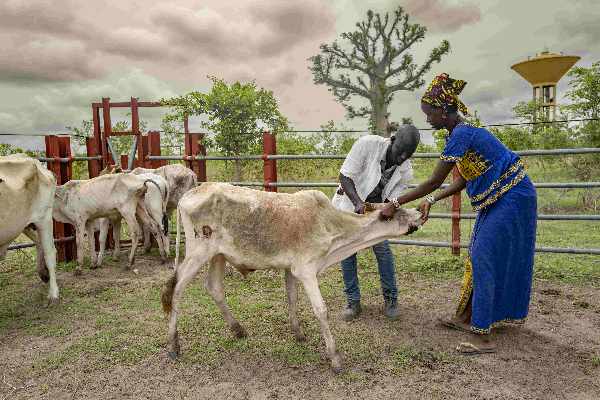A first-ever Global Conference on Animal Health Innovation, Reference Centres and Vaccines by the Food and Agriculture Organization of the United Nations (FAO) has been opened with an aim of tackling animal diseases costing the world hundreds of billions of dollars annually and posing a threat to human health, global food security and livelihoods.
“The productivity and resilience of livestock systems worldwide are threatened by infectious diseases, emerging pathogens, endemic disease burdens, and climate change,” FAO Chief Scientist ad interim Beth Crawford said in opening remarks. Addressing these challenges calls for “a united effort, leveraging our collective expertise and resources,” she added.
Significant step
The three-day event represents a “unique opportunity to explore how to integrate existing mechanisms and knowledge with new and improved tools to reduce the global burden of animal disease,” Crawford said.
Participants include Girma Amente, Minister for Agriculture, Ethiopia, Rwamirama Bright Kanyontore, Minister of State for Agriculture, Animal Industry and Fisheries, Uganda, Alka Upadhyaya, Secretary, Department of Animal Husbandry and Dairying, India, Emmanuelle Soubeyran, Director General, World Organization for Animal Health and animal health experts from around the world.
Animal diseases such as peste des petits ruminants (PPR), highly pathogenic avian influenza (HPAI) and African swine fever (ASF) directly affect the livelihoods of farmers through increased mortality and reduced livestock productivity, resulting in:
– cost to the global economy of up to $300 billion per year
– some 20 percent of animal production being lost because of disease
–75 percent of emerging animal diseases can be transmitted to humans.
Vaccinating animals is one of the most cost-effective and sustainable measures to prevent and control infectious emerging and re-emerging diseases. It reduces animal mortality, minimizes economic losses, decreases the need for antibiotics, and helps protect human health, food security, and farmers’ livelihoods.
The conference aims to advance global efforts to enhance animal health, prevent disease outbreaks, and promote sustainable livestock production and One Health implementation.
However, achieving this requires overcoming numerous challenges, including infectious diseases, climate change, and productivity and resilience issues.
Photo: ©FAO/Sylvain Cherkaoui








